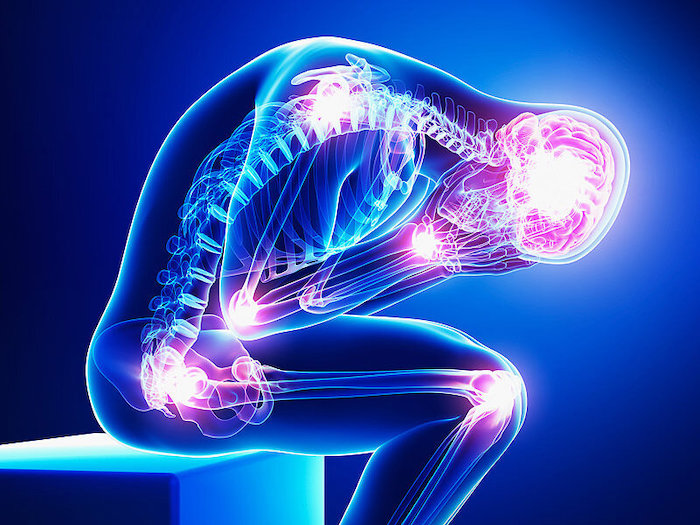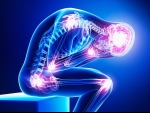
A growing number of people are reporting lingering symptoms after overcoming their initial bout with COVID-19. "Long-haul COVID" refers to a condition where a person doesn’t feel fully recovered from their illness, even months later, after the infection has resolved. Initial reports indicate that one of the consequences of even milder COVID-19 infections can include persistent pain, including painful joints or muscles, splitting headaches, and chest pain.
Because this is a relatively new and evolving clinical picture, there is still a lot to learn about how COVID-19 can cause pain, how long the pain could last, and how best to treat it. Even as the research continues, we still need to find more immediate ways to help those struggling to recover so they can move on with their lives.
Some of the pain related to COVID-19 is related to hospitalization and treatment -- and these are types of pain we’re somewhat familiar with. We know from experience that coming out of an intensive care unit is often associated with lingering pain problems, as well as cognitive deficits, psychological distress, and difficulties regaining physical function with daily activities. And we know that patients who spend a prolonged period of time immobilized or on a ventilator are likely to develop muscle atrophy, weakness, and neurologic problems, all of which can lead to persistent pain challenges. Past studies have shown that nerve changes can persist for years after an ICU stay. Some of the medications used to treat critically ill COVID-19 may further exacerbate some of these problems.
Since COVID was unknown until recently, we’re still learning how and why it produces pain in the body. We know that COVID-19 can directly affect the nervous system, sometimes in profound ways, which can contribute to prolonged pain symptoms. Both nerve and muscle tissue contains the receptors for the coronavirus spike protein, allowing the virus to invade and damage their normal activity. COVID-19 seems to have the potential to cause pain in a variety of ways, including damage to peripheral nerves causing neuropathy-like symptoms, affecting pain pathways inside the brain, and weakening or disrupting the activity of the musculoskeletal system.
The psychological symptoms associated with long-haul COVID also play a role. Signs of depression and anxiety are frequently getting reported, along with sleeplessness and cognitive difficulties. This can create a vicious cycle where mood problems make the pain harder to control, which in turn leads to even greater emotional distress. Posttraumatic stress disorder also needs to be considered when COVID patients continue to struggle with their recoveries. The trauma associated with the psychosocial experience of having COVID, as well as the experience of being hospitalized or on a ventilator, can contribute to active PTSD symptoms.
If pain is slowing you down after having COVID-19, make sure to bring that up with your doctor and ask for guidance on how you can best manage how you feel while still working on regaining your strength and emotional well-being. Let your doctor know where you need the most help when it comes to getting back to your normal routine, like going back to work, doing chores at home, or exercising again.
Here are some things to keep in mind:
- Be patient with your body. The recovery and rehabilitation of deconditioned and sore muscles can take time, so expect that improvement will happen slowly and gradually.
- Seek help from specialists. You may benefit from the help of those with expertise in the rehabilitation of chronic diseases, like physical therapists or occupational therapists.
- Seek emotional support. This can come from many places including mental health workers, religious and community institutions, public health resources, and of course from the empathy of family members, friends, and co-workers.
- Consider complementary and alternative treatments. Integrating your regular medical care with complementary treatments like acupuncture and massage can be helpful when considered safe.
- Be open to telehealth. Finding help while the pandemic still rages adds extra challenges and can limit access, which might mean looking for important resources through telehealth or other virtual services.
As the research on COVID continues, we’ll get a better understanding of the best ways to treat the different complexities and variations of pain problems. In the meantime, if you’re experiencing COVID-related pain, the best thing you can do is to seek the support you need and try to be patient with your body as it heals.
Precision Pain Care and Rehabilitation has two convenient locations in Richmond Hill – Queens and New Hyde Park – Long Island. Call the Richmond Hill office at (718) 215-1888, or (516) 419-4480 for the Long Island office, to arrange an appointment with our Interventional Pain Management Specialist, Dr. Jeffrey Chacko.













